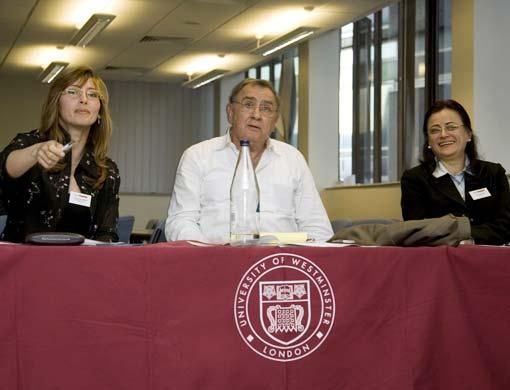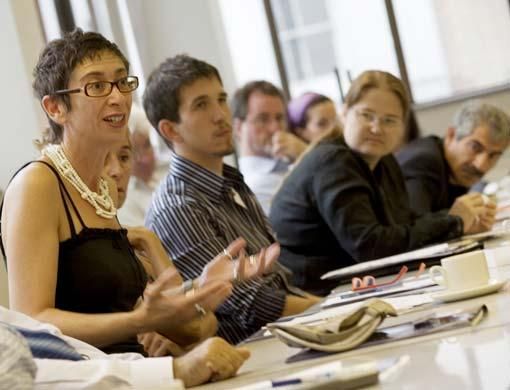Dubai: Arabs must encourage debate in all sectors of society in order to improve the status of the media in their countries, according to scholars and experts from both the Levant and the West.
Speaking to Gulf News on the sidelines of a conference held in London to discuss the challenges facing the development of Arab media and cultural studies in Arab universities, experts from the West as well as many Arab countries agreed on the importance of critical thinking.
"We need to have a debate about a debate. It is very important," said Tarik Sabry, senior lecturer at the Communication and Media Research Institute, University of Westminster in response to a question on the Arab media's weaknesses and strengths.
"We need to start a process of debate in schools," said Dina Mattar, from the School of Oriental And African Studies (SOAS) at the University of London.
"This would help us to analyse and develop analytical thinking," she added.
To Mattar, the majority of Arab media takes the news as it is from other media sources, without adding or reacting to it.
Education
"There is laziness, or may be a conviction that the [journalism] profession is not good or valuable enough. And all this starts from education in schools and at home," she added.
Meanwhile, ordinary Arab citizens are "thirsty" to talk and express their opinion. Evidence of this is in the high rate of participation in TV talk shows, blogs and comment columns on the internet.
"The most important thing in the case of the internet and blogging is that the identity of the person is not clear," said Mattar.
"There are many things people want to talk about, their lives, their social lives, the status of women and ethnic minorities.... When talk on these issues starts from the outside problems then start," she added.
But again, Arabs in general read far less than Westerners.
Book publishing in the Arab world is only a tiny fraction of publishing in other parts of the world. Furthermore, Arabs do not produce books on how to teach and research enough, scholars noted.
Books for teachers are written by people from other cultures and are imported, said Dima Dabbous-Sensenig, assistant professor of communication and director of the Institute for Women's Studies in the Arab World (IWSAW) at the Lebanese American University.
Accordingly, "the student is open to a history that is not his or hers, and to examples that are not his environment. It is not the West only that we should blame here," she added.
Apart from the necessity to produce more text books and material for teachers, scholars and experts warn of the "risks" of standardising media education programmes between the East and West.
"We could take a good methodology, the conceptual tools. But we have to at least work within our own culture to produce media studies," said Professor Mohammad Ayish, Dean, College of Communication at the University of Sharjah in the UAE.
"There are some common features that are shared by both sides, but still we have to look into peculiarities that would make us different, not because we would like to be different, but because we are different," he said.
Also, the focus on the quality of research is equally important and receiving further encouragement from governments, authorities and academic institutions is needed. The homogeneity of Arab culture to many is a strong point that can be built on in meeting the challenges facing media studies in the Arab world.
As for weak points, Professor Conrad Ozog, Director of Communication and Design at the Ministry of Higher Education in Oman, said they include the emphasis on academic qualifications.
"I am not saying academic qualifications are not important, but if that becomes an end point, it is a problem," he told Gulf News.
In response to the opinion that "Americanisation is the biggest Arab problem," Ozog said, "If we keep seeing the West as a continuous problem, we are never going to get our own identity."
Ethical
Other scholars believe Arabs should have more confidence in their abilities. "They [the West] are ahead of us in planning, yes," said Nabeel Dajani, Professor of the Social and Behavioral Sciences Department at the American University of Beirut.
"They are ahead of us in utilising their funds, yes. But in terms of human elements, they are not ahead of us. In terms of morality, they are not ahead of us. We are more moral, more ethical," said Danaji, calling for all elements of Arab society to be provided with the "opportunity to develop".
Have your say
Do you think Arab societies are ready for widescale debate? Is this indicative of definitive change? Tell us at letter2editor@gulfnews.com or fill in the comments form below.














